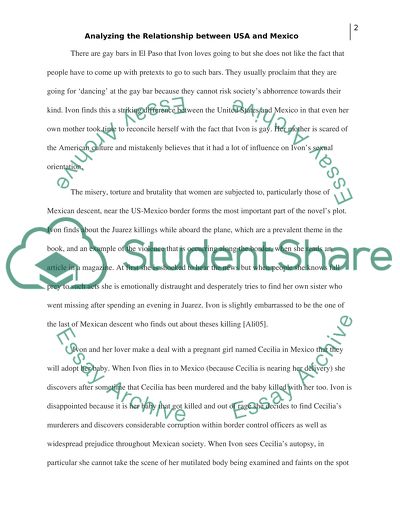Cite this document
(“Relationship between the United States and Mexico. The Desert Blood by Essay”, n.d.)
Retrieved from https://studentshare.org/literature/1393300-relationship-between-the-united-states-and-mexico-the-desert-blood-by-alicia-gaspar-de-alba
Retrieved from https://studentshare.org/literature/1393300-relationship-between-the-united-states-and-mexico-the-desert-blood-by-alicia-gaspar-de-alba
(Relationship Between the United States and Mexico. The Desert Blood by Essay)
https://studentshare.org/literature/1393300-relationship-between-the-united-states-and-mexico-the-desert-blood-by-alicia-gaspar-de-alba.
https://studentshare.org/literature/1393300-relationship-between-the-united-states-and-mexico-the-desert-blood-by-alicia-gaspar-de-alba.
“Relationship Between the United States and Mexico. The Desert Blood by Essay”, n.d. https://studentshare.org/literature/1393300-relationship-between-the-united-states-and-mexico-the-desert-blood-by-alicia-gaspar-de-alba.


